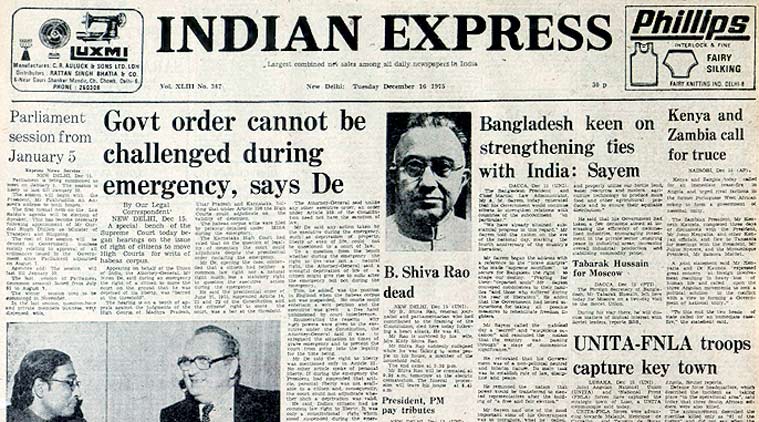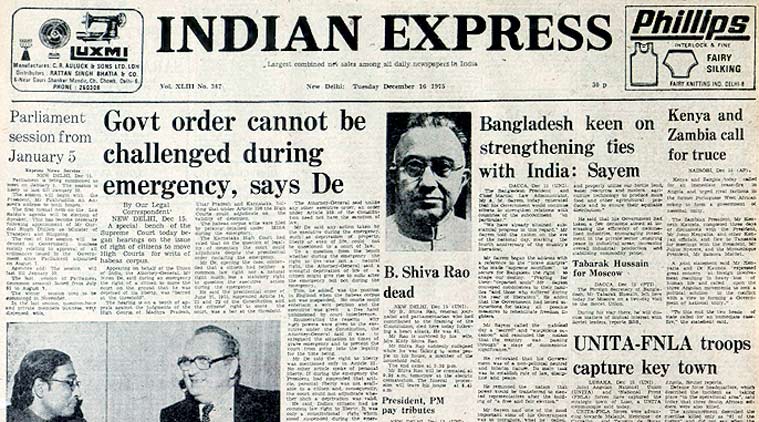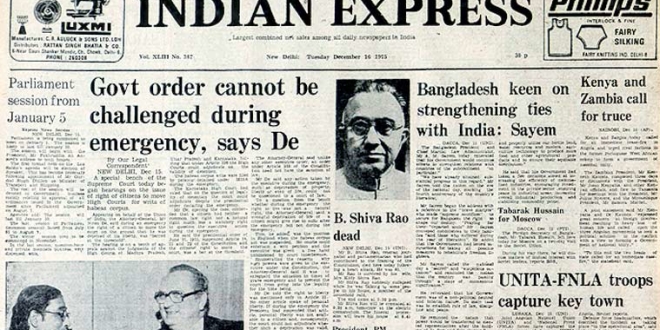
 The Indian Express as on 16 Decemnber, forty years ago.
The Indian Express as on 16 Decemnber, forty years ago.
A special bench of the Supreme Court began hearings on the issue of rights of citizens to move high courts for writs of habeas corpus. Appearing on behalf of the Union government, Attorney General Niren De said that during Emergency, the citizen’s right to move court on grounds that he was deprived of his liberty was “barred at the threshold”.
The hearings were on a batch of appeals against the judgments of the high courts of Madhya Pradesh, Uttar Pradesh and Karnataka, holding that, under Article 226, the high courts could adjudicate on the validity of detention. The habeas corpus writs were filed by persons detained under the MISA during the Emergency. The Karnataka High Court had ruled that, on the question of the legality of detention, the court could adjudicate despite the presidential order declaring the Emergency. De contended that a citizen had neither the common law right nor a
natural right, much less a statutory right, to question executive action during Emergency. He claimed that any action taken by the government during the Emergency, such as deprivation of property, liberty, or even of life, could not be questioned in a court of law.
Mending fences
Bangladesh President and Chief Martial Law Administrator A.M. Sayem reiterated that his government would continue efforts to strengthen relations with countries of the subcontinent “in particular”. “We have already attained substantial progress in this regard,” Sayem told the nation on the eve of the national day, marking the fourth anniversary of the country’s liberation.
Shiva Rao dead
B. Shiva Rao, veteran journalist and parliamentarian who had contributed to the framing of the Constitution, died in New Delhi at the age of 85. Prime Minister Indira Gandhi, in her condolence message, described him as a “man of great culture and wisdom”. He was best known for the monumental six-volume work, The Framing of India’s Constitution.
![]()
Source: New feed






